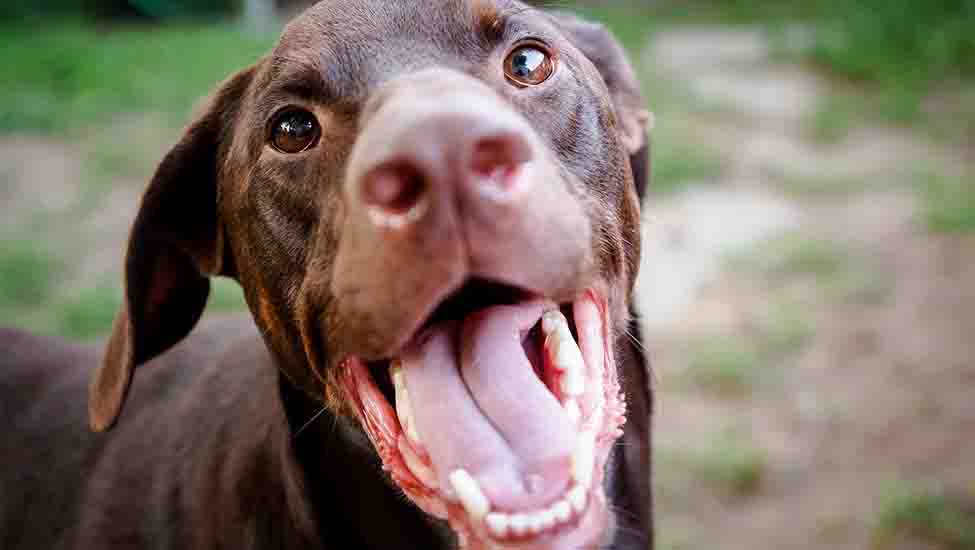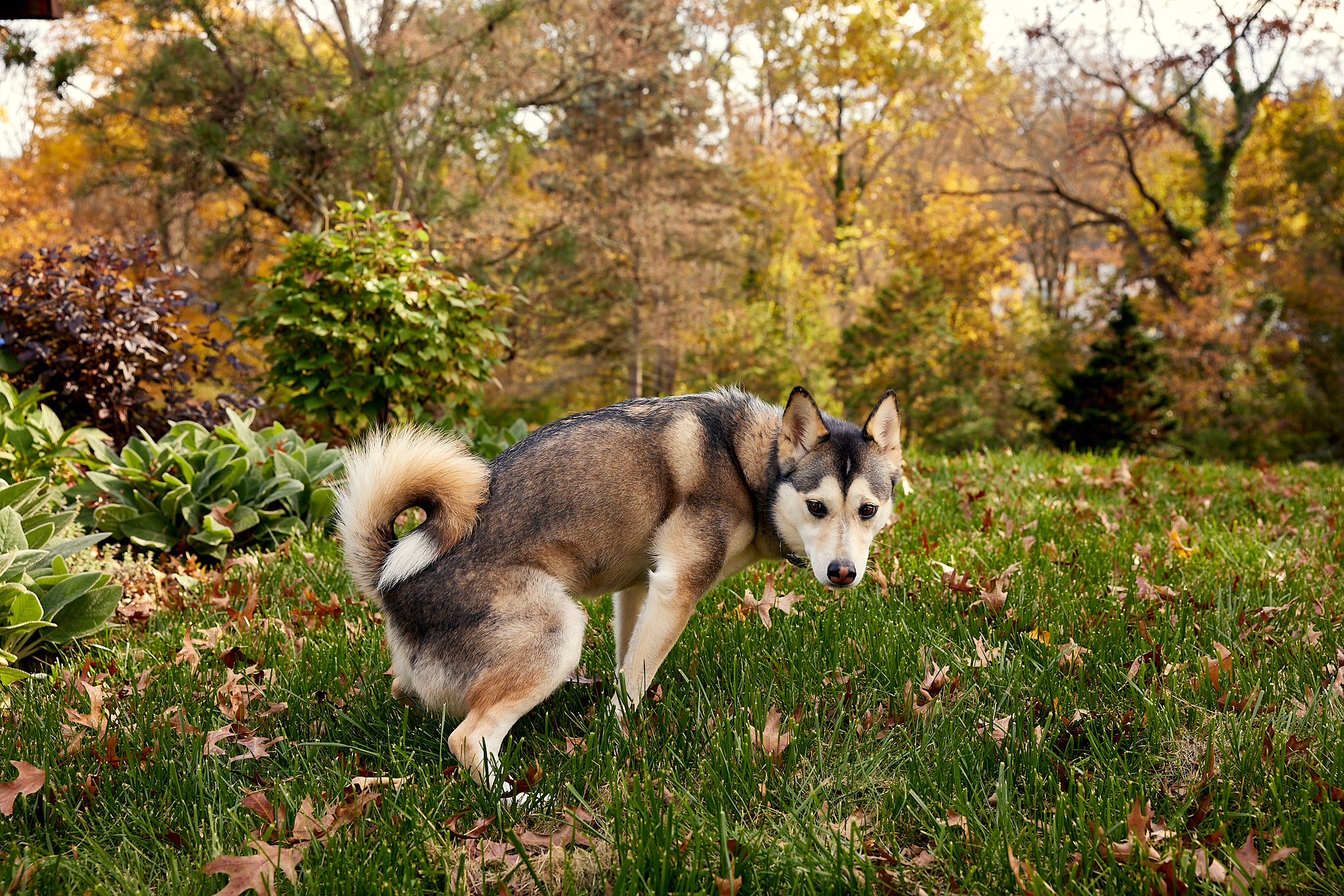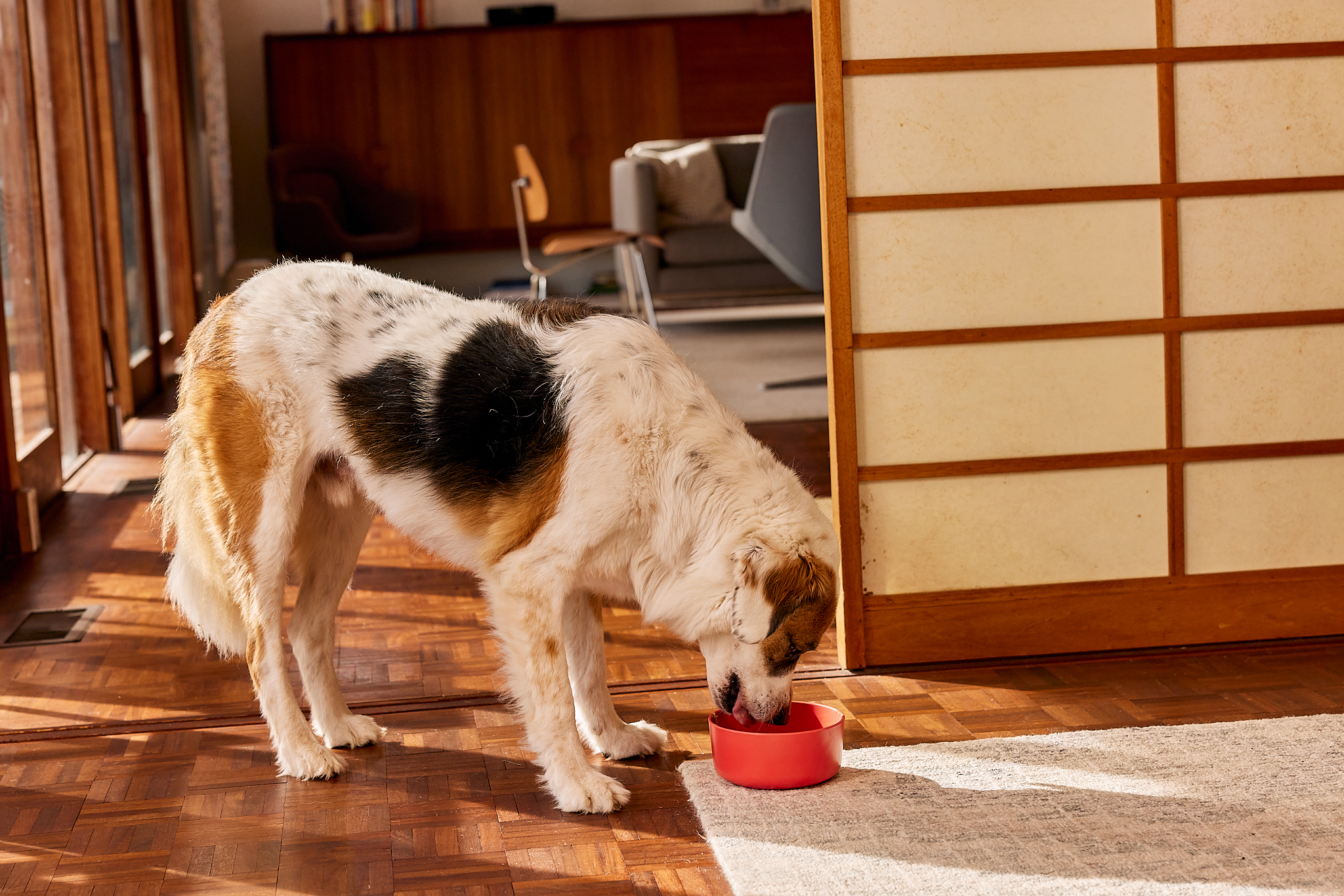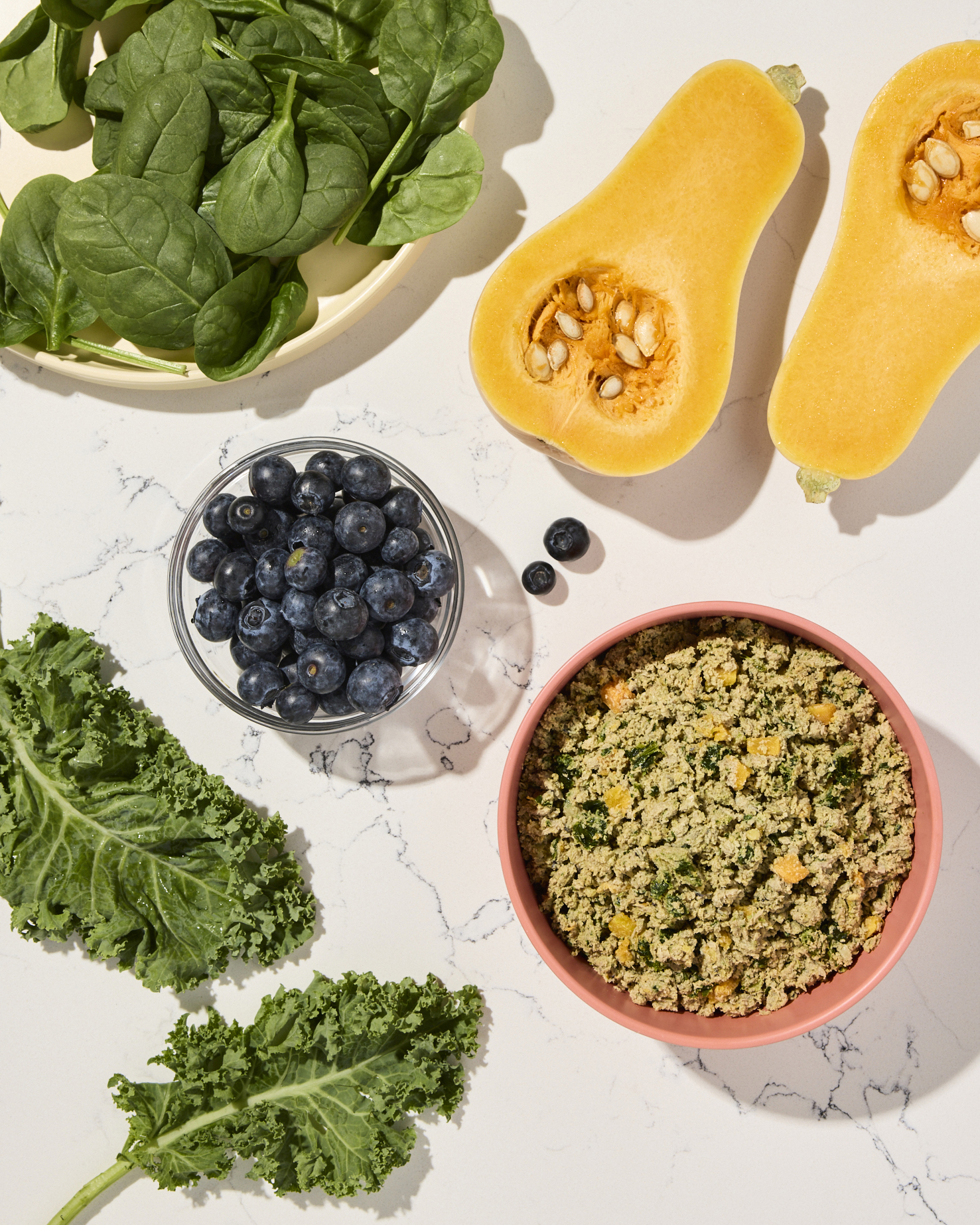Hey Ollie blog readers! We’re offering you an exclusive 60% OFF your starter box! Try now!
When it takes a thesaurus to describe the horror of your dog’s breath, perhaps what you need are fewer adjectives and more solutions. That odor (aside from being a major licking slash kissing deterrent) can be an indicator of potential health problems such as dental and kidney disease—or a sign of a less-than-nutritious diet, so it’s important to pay attention to the stench. (As if you could ignore it!) In addition to regularly brushing your pup’s teeth and gums, we’ve got a handful of home remedies that can help.
What causes bad breath in dogs?
Poor oral health
Just like you take care of your teeth, oral health is important for your dog too. If your dog has bad breath, the most common cause of this is poor oral health. This can include periodontal diseases and gingivitis.
If you let plaque and tartar build-up on your pup’s teeth you may also be looking at some very high vet bills too. Your pup may need a dental cleaning under anesthesia.
Bad breath can also be caused by broken, infected, or dead teeth. These usually need to be removed so as to not cause infection to spread or additional pain to your pet. If you notice in addition to bad breath your pup is not eating well or playing with toys a dental issue could be the cause.
Like humans, dogs can also suffer from periodontal disease. The Veterinary Oral Health Council defines periodontal disease as “an infection resulting from build-up of soft dental plaque on the surfaces of the teeth around the gums. The bacteria in dental plaque irritate the gum tissue if plaque is allowed to accumulate, which often leads to infection in the bone surrounding the teeth.” In this case, your vet will need to clean out the bacteria under your pet’s gums and may also need to give you some antibiotics to administer to ensure the infection does not come back.
Poor diet
A poor diet can contribute to bad breath too! If your pup isn’t eating enough, getting enough water, or isn’t eating a high-quality balanced diet you may notice some bad breath. Another way poor diet can contribute to bad breath is if your dog is eating things they are not supposed to. For example, if your pup is eating garbage or sneaking into the cat’s litterbox both of these activities can lead to stinky breath.
Other underlying medical conditions
If your pup’s oral health is earning you high praise from your vet, and your pup is eating healthy and nourishing food, you will probably want to get your pup checked out. There are several more serious medical conditions that can cause your pup to have bad breath. These include some cancers, diabetes, and liver or kidney diseases.
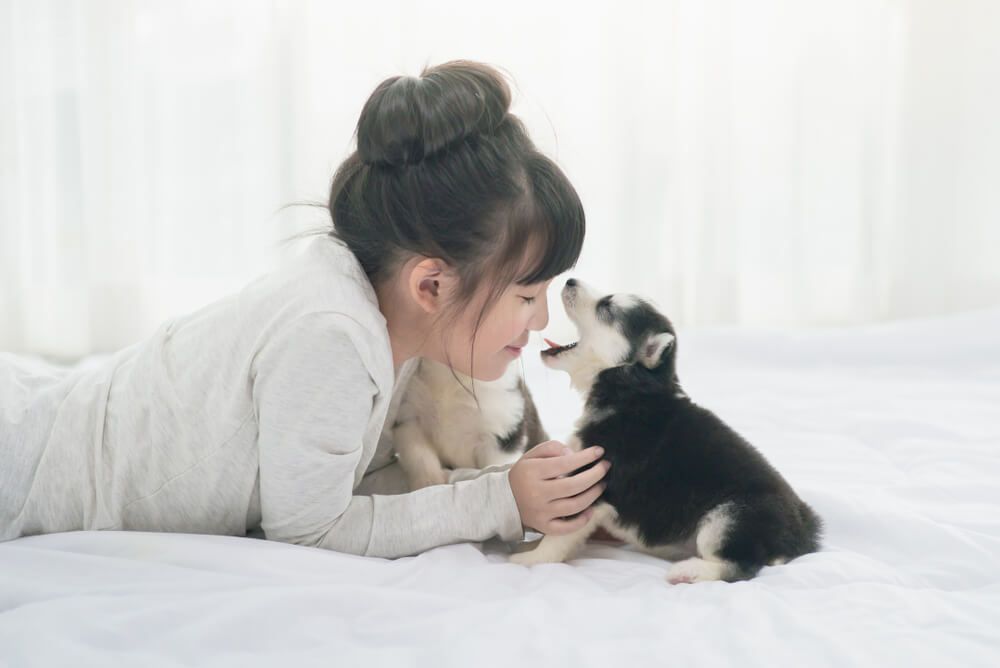
How to help cure your dog’s bad breath
Carrots & Apples
Tartar on teeth leads to bacteria that stinks, but reaching that tarter—particularly on the back teeth and along the gum line—can be a tough job for a doggy toothbrush. A daily snack of crunchy carrots or apples can help clean those hard-to-reach teeth (while simultaneously serving as a healthy treat.)
Kong Treat with Toothpaste
If your dog won’t cooperate for a traditional teeth brushing session while you sing the alphabet, a next-best alternative is smearing a thin layer of enzymatic toothpaste made for your pup in and on a Kong or similar toy. As your dog licks and chews, the action can mimic brushing. You can even crush this Martha Stewart-style and make your own natural toothpaste. Don’t use human toothpaste, whatever you do. It contains ingredients like artificial sweetener that can make your dog sick!
Mint & Parsley
Those bright fresh herbs you’re chopping up for dinner? Sprinkle some in the dog bowl too. Not only are both of these herbs natural breath deodorants, the chlorophyll that makes them bright green fights stinky bacteria in the mouth and in the digestive system, too.
Probiotics
Clean teeth and gums can’t make up for an unhealthy gut, a common culprit when it comes to bad breath. Probiotics support the good bacteria in the body and many dog-friendly human foods are a good source: Yogurt, kefir, bananas, garlic, and honey all boast natural probiotic properties.
Apple Cider Vinegar
You and your cycling class posse aren’t the only ones who can benefit from a tap water upgrade. A half teaspoon of apple cider vinegar in your dog’s water bowl is a natural disinfectant and a great way to lap up better breath. (Most dogs actually like the taste!)
Fresh Water Speaking of your dog’s water bowl, it’s a breeding ground for smelly bacteria buildup invisible to the eye. Thoroughly wash and dry your dog’s water dish every day before refilling it with clean H2O several times.
Coconut Oil
This multi-purpose oil is quickly becoming a favorite cure-all, and now you can add “fights bad dog breath” to its list of superpowers. A spoonful of this healthy fat for your dog is a sweet treat that aids digestion and immune system function. It makes a great toothpaste alternative, too.
Good Nutrition If poor nutrition is one of the causes of your pup’s bad breath, your vet may recommend a diet change. Here at Ollie , we would agree. Along with our veterinary nutritionist we have created four delicious and nutritious Recipes to help your keep your pup feeling their best!
If your pup is eating things they shouldn’t like garbage, cat droppings, litter, or your favorite plants, you will want to make some changes there too. Keep the garbage well sealed, and move the cat box and your plants out of their reach. You also want to ensure you are supervising your pup closely as stinky breath may be the least of your problems – you could also be dealing with indigestion, vomiting, or diarrhea.
If natural methods don’t work, call in a professional
If you are noticing that your dog has bad breath, your vet may recommend a dental cleaning. Dental cleanings for dogs should take place while your dog is under general anesthesia. This is for a number of reasons for your pup’s safety. First, this way your vet can be thorough and clean any plaque under your pup’s gum line, not just the surface of their teeth. The instruments your vet will use are sharp, and if your pup were awake and moved during the procedure they could be injured. Additionally, your vet may need to perform other procedures like taking dental x-rays or removing teeth. For your pet’s comfort and safety this is best done when they are safely asleep.
There are some professionals including grooming practices that will advertise an anasthesia free dental cleaning for your pup. The American Veterinary Dental College advises against using these services. They remind pet owners that one of the American Animal Hospital Association’s standards is that dental care is performed under anasthesia.
Improve oral health habits
Even if you weren’t brushing your dog’s teeth it is never too late to start. Ask your vet to show you how and start slowly. You can show your dog the toothbrush or place a small amount of toothpaste on your finger and place it on their tooth gently first. Work up to being able to brush daily. Your pet will be healthier and you’ll be able to enjoy all their kisses minus the stinky breath!
The Ollie blog is devoted to helping pet parents lead healthier lives with their pups. If you want to learn more about our fresh, human-grade food, check out MyOllie.com.
Tagged As:

The nutrition your dog needs,
the food they want.

Enjoying our articles? Subscribe our Newsletters and get new articles directly to your inbox
You might also like
3 July 2025
5 MINS READ
How Fresh Food Can Help Your Dog Have Perfect Poops
As a pup parent, you’re likely very familiar with your dog’s bathroom habits. While it may not be the most glamorous part of taking care of your pup, a dog’s stool can be one of the most dir…
by Ollie Pets
4 June 2025
5 MINS READ
How Can Fresh Dog Food Help with Weight Management?
Maintaining a healthy weight is one of the most important aspects of your dog’s overall health and longevity. Being overweight or underweight can result in health complications and conditions that…
23 May 2025
5 MINS READ
Why Fresh Dog Food Makes Happier, Healthier Dogs That Live Longer
Every pup parent wants their dog to live a long, happy life, and the path to a healthier, happier dog starts with what’s in their bowl. Recent research and expert insights reveal that fresh dog …
by Ollie Pets
